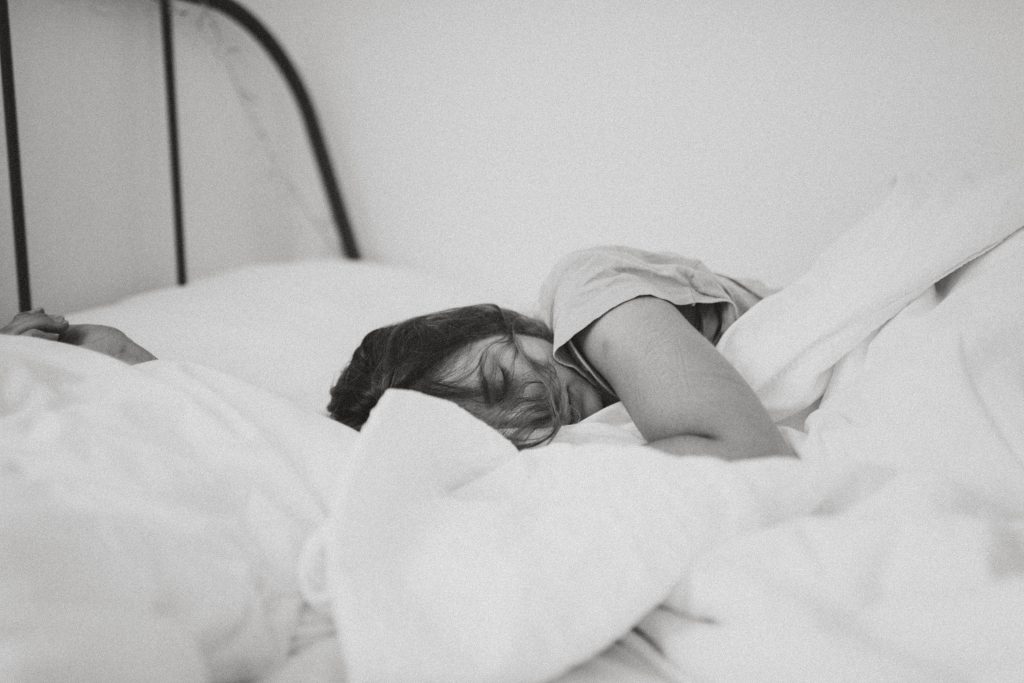A good night’s sleep can have a huge impact on our day-to-day lives, influencing everything from our mood to our focus and performance at work. It’s even thought that those of us who get the right amount of sleep will live longer than those who sleep too little or too much, according to a 2002 study.
Given the clear and undeniable health benefits of sleeping well, it’s clear that we should all be aiming for the magic eight hours sleep a night. But with caffeine, computers, smartphones and stress all conspiring against us and doing their best to keep us awake, this is often easier said than done.
To help you get your sleep schedule back on track and get the rest you need to feel energised during the day, here are 4 tips for the IDEAL night’s sleep.
DE-SCREEN BEFORE BED
In the modern world of non-stop emails and social media, we tend to be inseparable from our smartphones. A moment away from it is one imbued with a sense of panic and weakness. But the blue light that LED screens give out can confuse our body clocks, making our brains believe it’s still daylight and dampening our natural appetite for sleep.
To help stop your smartphone from disrupting your sleep, it’s best to try and leave it outside your bedroom, or hidden in a drawer in your bedside table. Studies have shown that even having a phone in your line of sight causes distraction, so get that thing hidden. If you prefer to use your phone for reading before bed, then try installing a filter to counteract the effects of the light. Apps like Night Shift can improve your sleep cycle by filtering blue light from your screen, meaning you can continue to use your phone without the sleep-affecting negative effects of the LED screen.
CHECK YOUR MATTRESS AND BEDDING IS DOING THE RIGHT JOB
Your mattress and bedding can make or break your night’s sleep, so you need to make sure that yours are perfectly comfortable. The right duvet should keep you cosy without making you wake up in a sweat, while the perfect pillow will keep your neck comfortably aligned with your spine; not too high, not too low. If you frequently wake with neck pain, then it’s a sign that your pillow isn’t giving you the support you need.
It’s also worth considering the age of your mattress, as this could have a big impact on how effectively it supports your body during sleep. While some manufacturers recommend changing your mattress every eight years, exactly how often you need to change yours will depend on factors like your weight and height, and whether your needs have changed as you’ve grown older.

QUIET TROUBLING THOUGHTS AND STRESS
If you often find that stressing about your to-do list keeps you awake at night, then don’t make one. Seriously though, those who lay awake worrying often find that some basic mindfulness exercises help them to drift off faster. Meditation before bed is a great way to clear your mind and stop fixating of the issues of the day and tomorrow, will also help your body and mind get ready for bed, helping you to sleep more soundly.
Deep breathing exercises (also called ‘pranayama’ by yogis) are especially effective, because they calm the mind, slow your heartrate, and increase your oxygen intake, all of which help to prepare the body for sleep. So, switch off the TV, dim the lights, and try ten minutes of mindful deep breathing instead. These simple pranayama exercises from DOYOUYOGA are simple enough for beginners, and are brilliantly effective for relieving stress before bedtime.

KEEP A SLEEP DIARY
A sleep diary can help you to identify which environmental and dietary factors cause you to sleep poorly (and also, well) so you can eliminate harmful behaviours from your lifestyle. Before bed, make a quick note of what you ate and drank during the day, as well as any exercise you’ve taken. It might also help to record anything you found particularly stressful during the day, and what relaxed you, too.
Then, in the morning, write a quick summary of how well you slept, rating your sleep out of ten and noting how many times you woke during the night. Over time, you should notice patterns forming which will help you to identify what’s disrupting your sleep. So, if you notice that you sleep poorly after certain food or drinks, you’ll know to avoid them in future.
A restful night’s sleep doesn’t happen by accident: it’s all down to what you do during the day, and how you prepare for bed in the evening. If your sleep schedule is a mess and you’re feeling permanently tired, then try incorporating these tips into your bedtime routine — you’ll soon notice a real difference.





